Staff Book Reviews by Genre: Science Fiction

Petra Peña wants to be a cuentista, a storyteller, like her abuelita. But Petra’s world is about to change forever. Earth is gone-destroyed by an asteroid. Petra and several hundred humans are voyaging hundreds of years into the future in the hope of saving humanity on a different planet. Before arriving on the new planet Petra and the others will remain in a sleep stasis, downloading information that will help them start over a new planet.
When Petra wakes up, hundreds of years later, she soon discovers the original plan has drastically changed. There is a new group in charge of their spacecraft with a different agenda for those left on board. What does the future hold for Petra and the others? Will she be reunited with her family, and preserve the art of storytelling for future generations?
This is an enjoyable book for ages 12+ who are interested in sci-fi but who might be intimidated to pick up a traditional title from the genre. It’s layered with a beautiful message of family, perseverance, and the lifesaving power of storytelling.
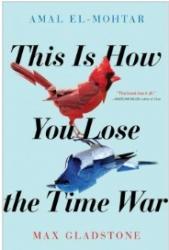
This time-travelling story of love and genocide centers on two rival agents battling to secure the best possible future for their warring factions. It opens with a blood-covered Red, the last woman standing on a battlefield heaped with corpses. She finds a letter that starts with “Burn Before Reading” from Blue, her rival whom she has spent lifetimes trying to thwart. So it starts with a taunt followed by a challenge scratched in a lava flow and a message woven into the DNA of a tree cut down by marauding armies. These spies never meet but these compromising letters – certain death if discovered by their superiors – build upon a mutual understanding that evolves into love. Who better to understand someone weary and confused by merciless, contradictory orders than their rival? Or is this an attempt to turn the other into a double agent? Or lay a deadly trap? This novella deftly avoids the confusion that spoils average time-travel yarns by making each of the chapters into a vignette, told from either Red or Blue’s perspective, until a satisfying, meaningful conclusion.
Awards: 2020 Nebula Award for Best Novella, 2020 Hugo Award for Best Novella
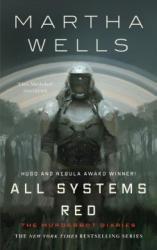
We all struggle to figure out who we are. It’s no different for a robot that’s managed to secretly override its governor unit and develop self-aware independence. The artificial construct, made up of regenerative organic and artificial parts, privately calls itself Murderbot out an emerging sense of guilt it tries to squash by watching hours of mindless TV. But even that distraction cannot keep a socially awkward, self-conscious entity from developing feelings about the humans it serves. That internal conflict is so realistic it is easy for the reader to forget it is an artificial construct narrating. Murderbot’s deadpan humor keeps the 2017 novella from bogging down and raises it well above a familiar action/corporate malfeasance plot. The novella is the first of a five-part series, all available through PPLD, with a full-length novel, Network Effect (May 2020) continuing Murderbot’s journey of self discovery and soap operas. A sixth series entry is scheduled for April 2021.
Honors: 2017 Nebula Award for Best Novella, 2018 ALA/YALSA Alex Award, 2018 Hugo Award for Best Novella, 2017 Philip K. Dick Award finalist.
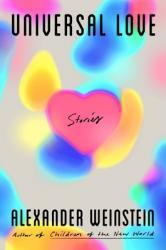
"Universal Love" is 11 short stories set in the near future, showing how people use technology to navigate relationships. In one story, a widower signs up for a program to re-create his deceased wife, only to find out his daughters downloaded a fictitious history from romance novels. Another story has testimonies of why people use on-line dating services. A third story explores the relationship of two robotic children who try to act like human children, even to the point of having real life problems and addictions. An interesting look at technology and how it could be in our not far future of how we relate to each other. One constant remains, and that is our need for human interaction, no matter the media we use to get it.
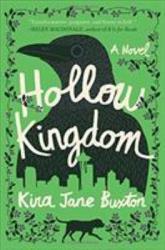
This debut novel is a refreshing romp through the Apocalypse narrated by a foul-mouthed domesticated crow whose only knowledge of the world is TV. This mash-up of "The Incredible Journey" and "The Walking Dead" has an environmental message, focusing on humankind's increasing disconnect from the natural world. You may want to reconsider all those hours of screen time. But do read this novel, which while a tad long, chronicles the adventures of S.T. (not a library appropriate name) and his heroic steed, the dim-witted dog Dennis. The crow tries to save humankind, learns about himself and the natural world in a frightening new Seattle featuring an emerging predator.
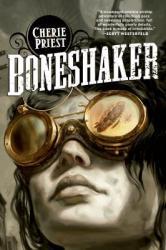
Boneshaker is the novel that kicks off Cherie Priest's "Clockwork Century" series - one of the most widely acclaimed book series in the Steampunk genre. Boneshaker explores an alternate history of the United States during the Civil War era. The plot centers around Briar Wilkes, the widow of the infamous Leviticus Blue - inventor of the titular boring machine that he was commissioned to create, in order to retrieve the vast veins of gold that are hiding under the thick ice of Alaska in the midst of the Klondike Gold Rush. During a devastating test run, the Boneshaker destroys the foundations of a good portion of Seattle, killing many, and releasing a dangerous gas that turns survivors into zombies. Leviticus disappears, and walls are erected around Seattle to contain the "blight" gas, and the "rotters". Briar does her best to survive and raise her son Zeke in the "Outskirts" of Seattle, suffering the prejudice shown to both of them, due to her husband's actions. Zeke is convinced that he can prove that his father was innocent, and that the destruction was purely unintentional, so he journeys beneath the wall, into Seattle to find the evidence he needs. Unlike Leviticus, Zeke's
grandfather (Maynard Wilkes) is revered as a folk hero, having lost his life in the exodus of Seattle, freeing inmates from the prison. Zeke feels this may help him if he runs into trouble within Seattle's walls. When Briar finds Zeke gone, and what his intentions are, she arms herself with Maynard's accoutrements and catches an air ship over the wall, to search for her son. Separately, Briar and Zeke find people who help to save them from being devoured by the "rotters", and attempt to aid them in their respective searches. Briar learns of the mysterious Dr. Minnericht who seems to run the
doomed city within the walls, and that many are convinced that he is in fact, Leviticus Blue (something she doesn't believe). When events draw Briar and Zeke both into Dr. Minnericht's stronghold, it seems the heart of the mystery
will be resolved with this fateful meeting.
Boneshaker is an epic foray into a dystopian alternate universe, and readers of various genres, are sure to find many wonders to be fascinated by in this version of Washington's famous "Emerald City".
In addition to physical book and audiobook formats, Boneshaker can also be downloaded and enjoyed at home, in either ebook or eaudiobook form.
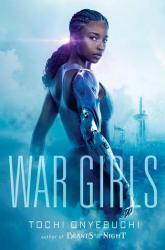
Onyii and Ify live as sisters in an all-girls refugee/war camp on the edge of the Redlands, an area riddled with radiation from a long-ago nuclear disaster. Nigeria, their home, is in the midst of a civil war. Children are conscripted as soldiers and pilots for mechanized warrior robots. Onyii and Ify are separated, and as truths are revealed to each of them, they must decide where, and with whom, their loyalties lie all while trying not to die a terrible death in a bloody civil war.
Going into this, I knew nothing about the Nigeria - Biafran civil war of the 1960s, which is at the heart of this novel. Personally, I enjoy learning about parts of history that I know nothing about (I typically don’t gravitate to one of the 1,983,784,767 WWII novels, for example), and I really enjoyed the unique setting. The book is set in the future, and the futuristic elements really added a lot to the plot and were well employed by the author. Onyii, for example, is an Augment, meaning that she’s a little bit of a bionic woman. While I didn’t really relate to the main characters, I did really like them. They didn’t always make the best decisions, but their decisions made sense to their characters and their respective arcs. They were easy to root for. Really, my only complaint was that it felt overlong, and I skimmed through some of the battle scenes, but that’s more a matter of personal preference.
TLDR: Looking for something to read after Children of Blood and Bone? You’ve found your next great Nigerian inspired read! (And, honestly, if you haven’t read Children of Blood and Bone but it’s on your TBR, I’d suggest replacing it with War Girls, which is a much more original, engaging book). For readers who like apocalyptic novels and futuristic sci-fi battles. 4 stars.
Thanks to Netgalley and Razorbill for the eARC which I received in exchange for an honest review. War Girls will be available for purchase on 15 October, but you can put your copy on hold today!

Tess is a time traveling member of the Daughters of Harriet, a group that does it's best to make their present time, 2022, a safe place for women, whether cis or trans. There's a men's right's activist group from further in the future trying to undermine their efforts by erasing the Daughters of Harriet and women's rights folks from the timeline. Meanwhile, in 1992, teenager Beth, a friend from Tess' past, finds herself in a bit of a pickle. She and her friends kill a boy who was in the process of sexually assaulting their friend. This starts the girls down a murderous path that Tess will do her best to stop.
For the most part, I enjoyed this book. I usually enjoy time travel, unless its being used as a cheap plot device which was definitely not the case here. Newitz did a lot of homework for this one - the historical notes at the end were really interesting and trips to the past often include historical figures. The story alternates between Tess and Beth with a few other perspectives thrown in on occasion. Tess mainly splits her time between the late 1800s (easily my favorite parts), the early 1990s and her present in 2022, while Beth's story is firmly situated in 1992. While I enjoyed both stories, I never really felt compelled to read the book. Both perspectives were interesting, but not captivating or thought-provoking (though I suspect the book will provide plenty of thinking material for some readers). As a result, certain plot points felt unnecessary and the book felt overlong. I really hated the way Tess' story ended. Nonetheless, its an enjoyable read that makes a great point (women are people too, who knew?) that I would recommend to science fiction readers that are interested in women, women's and LGBT rights. There's also quite a bit of 90's punk rock that readers of a certain age will love. The ending is also quite optimistic, which I wasn't expecting, but did welcome.
TLDR: The Future of Another Timeline is interesting book full of time travel shenanigans that is plagued by the same issues that all time travel book face. Ultimately, while the book was fun, feminist and full of salient social commentary, it wasn't compelling.
3 stars - I liked it.
Thanks to Netgalley and Tor for the advance copy which I received in exchange for an unbiased review. The Future of Another Timeline will be available for purchase on 24 September, but you can put your copy on hold today!
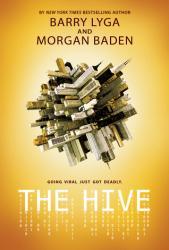
In the near future, an app called BLINQ tracks all social media usage and amalgamates posts from a number of platforms. On BLINQ, you can vote to condemn a person for their social media output – if a person’s condemns to likes ratio gets out of balance, they’ll find themself condemned in real life. For example, a person who ignominiously dumps their partner on Facebook might find themself getting physically dumped in the trash. The punishment is designed to fit the crime. Called the Hive, its something our lead Cassie loved to participate in – until all of a sudden, it wasn’t. After a racy tweet, Cassie finds herself the target of the Hive, but her punishment is more severe than all that have come before it: death.
This was a fast paced, enjoyable dystopia which was a good change of pace from my normal fare of fantasy. I think teens are going to love it. Aside from a few horrendous decisions, our lead Cassie is likable, smart (ostensibly, anyway) and her experiences navigating a new high school will resonate with teens. As Cassie spends most of the book running for her life, it will definitely appeal to thriller fans or those that need their books to be very plot based. I read the book in a day or two even though I had a good idea of how it was going to play out. Little attention is given to the supporting characters, though the book did also present a few chapters from Cassie’s mom’s perspective, which I loved. The authors did a great job portraying a somewhat fraught mother-daughter relationship. There’s though-provoking, if heavy handed, social commentary to be found as well, and I think this book will stick with some readers long after they've turned the last page.
Ultimately, though, the book had what I’m going to call the “Scythe” problem: the premise just wasn’t believable. The Hive was certainly believable – its basically a physical manifestation of the shame that we’re willing to dole out to strangers online (if you’d like a great non-fiction read on the topic, try So You’ve Been Publicly Shamed by Jon Ronson ). Did I for one second think that the first person to get the death penalty would be a teenage girl who tweeted something offensive? I did not. I had trouble getting over that.
TLDR: If you liked The Maze Runner, Divergent or yes, Scythe, you should definitely check out this thrilling dystopia.
Lots of teens will love this one, but it didn’t do it for me – 2 stars. It was ok.
Thanks to Netgalley and Kids Can Press for the eARC which I received in exchange for an unbiased review. The Hive will be released on 03 September but you can put your copy on hold today!
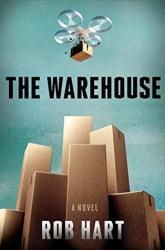
Imagine a world where Amazon controls pretty much everything (its really not hard to do, right?). They are the only large employer, and they have managed to put just about every other retail company out of business. Most folks who need employment have to head to their nearest Cloud center (Amazon = Cloud), apply, and hope against hope they are accepted. This is the fate of our two main protagonists, Zinnia and Paxton. Paxton wants more than anything to keep his head down until he can get patent money for his invention, a business that was going well until Cloud forced him out of business. Zinnia’s reasons for working at Cloud are a bit more inspired (it would depend on your perspective) as she’s been hired to try to take Cloud down from the inside. As Paxton and Zinnia are thrown together, both will come to realize that the Cloud was more insidious than they thought and they’ll have to sacrifice more than they’re comfortable with the bring it down.
I read this book right after watching John Oliver’s sendup of this sort of corporate culture and dang, Rob Hart did his research. His version of Amazon matches quite closely with what Oliver presents as the actual version of Amazon. I mean, it’s not great. Its really fascinating to read this near-future take on what Amazon and their ilk could mean for our country and economy as, like I said, this is a future that is really easy to imagine.
The book takes turn between Zinnia, Paxton and Gibson Wells’ (think Jeff Bezos) narratives. The characters are believable and likable enough (save Wells, but that’s obviously intentional) that I was not overly fond of one perspective over the other and never found myself racing through one perspective to get to a different one. Nonetheless, the book ends up being a quick read. It was sort of John Grisham meets Brave New World, and I was not mad about it. It’d make a fantastic movie, and clearly someone agrees with me as the author thanks Ron Howard and Bryan Glazer in his afterword.
If you are looking for a quick summer read that’ll make you think (but not too hard), this dystopian thriller will suit your needs. 4 stars – I really liked it!
Thanks to Crown and Netgalley for the free eARC which I received in exchange for an unbiased review. The Warehouse will be release on 20 August, and you can put your copy on hold today!
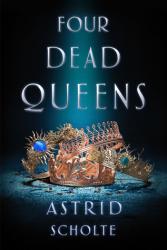
This book was not for me, but I think a lot of young adults will really love it. The following is essentially a laundry list of my issues. First, the worldbuilding was pretty weak. The fours quadrants are fairly reminiscent of those in Divergent, but they rarely interact and the farming sector basically works on Amish rules while the technological sector has holographs and advanced biosuits and all sorts of stuff. It does not make a ton of sense. And neither does the “queenly law” or really anything to do with the rules the palace or kingdom operates under – it all seemed pretty transparently created to serve the story that was written. Moving along. The characters really left something to be desired. Most were one-dimensional. The main character, Keralie, couldn’t make a good decision if her life depended on it and falls squarely into the snarky and ostensibly clever thief trope. We do get to hear from the queens a bit, but as I knew they’d end up dead and we only spent a little time with each of them, I didn’t find that it added to the story. And, of course, there is instalove between Keralie and our extremely boring male lead, Varin.
Some components of the book are pretty enjoyable. I think the premise is really cool (if executed poorly). The first queen’s murder took me a bit by surprise, and was deliciously gruesome. There were a few twists that I didn’t see coming. I quite liked the last 50 pages or so – the author, a debut, clearly has some really great ideas. Unfortunately, they didn’t come together in this book, though I’d try another book by this author pending favorable reviews.
TLDR: Readers who loved The Red Queen and Divergent will probably enjoy this one as well. I couldn’t get past the weak characters and worldbuilding, but I think a lot of readers will likely devour this one nonetheless. For me, it was just ok. 2 stars.
Thanks to Netgalley and G. Putnam’s Sons for the advance copy which I received in exchange for an unbiased review. Four Dead Queens will be released on 26 February.
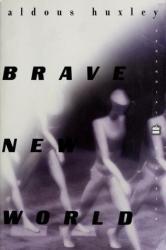
One of the first dystopian novels, Brave New World follows an outsider as he tries to navigate the workings of a society that has been developed into a utopia by using conditioning and genetic modification. Originally excited to visit this 'brave new world', Savage becomes increasingly distraught by the lack of humanity exhibited by its inhabitants.
I liked this book better than 1984, mostly because 1984 had some 'preachy' sections and this one had fewer and had a more interesting plot line to me. While 1984 was violent, Brave New World was promiscuous. Both books eschewed solitude for constant interaction, 1984 being involuntary, Brave New World, voluntary. Both books are worth reading.
One reason Brave New World is fascinating is because of the way they control the birth and childhood of the population by conditioning and genetics. Copulation is as common as a handshake and soma restores all to rights. All this was written in the 30s! Aldous Huxley is the man!
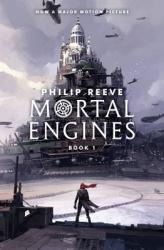
Tom, a lowly museum apprentice, is suddenly and literally thrown out of the elevated, traction city of London into a world of intrigue, mortal danger, conniving pirates and robot-like Stalkers who are programmed to kill him. He has to endure travelling with a cranky, would-be assassin and come to grips with his own doubt about what his city really is. First published in 2001, Mortal Engines, by Philip Reeve, is a classic Steam Punk novel that will keep readers 9 - 90 on the edge of their seats turning pages to find out what catastrophy will occur next in poor Tom's life. This is the first book in a series.
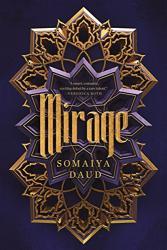
In this Moroccan inspired sci-fi/fantasy read, our protagonist, Amani, is taken away from her family and planet by an oppressive regime right in the middle of her coming of age ceremony. She soon discovers that she’s been taken because she looks exactly like the princess and heir to the throne, Maram. As assassination threats aimed at Maram get more serious, Amani realizes that she’s been taken to be trained as a body double. While at first swept away by the trappings of the court, Amani comes to understand that she faces mortal danger on two fronts: if she doesn’t portray the princess well enough, if she’s discovered, she’ll be killed. If she plays the princess too well, she’s likely to be assassinated.
When I read this premise, I knew I needed to get this book in my hands. I love court intrigue and the chance to learn about a new-to-me culture. Unfortunately, I was a bit disappointed. For almost every element that I considered, there was something that I liked and something that I hated. For example, take the world building. The Moroccan lense through which the world was built led to some rich cultural and fantastical elements as well as some pointed commentary about the negative effects of culture erasure and colonialism. However, the science fiction elements were completely out of place, unnecessary, and jarring. They’d take a spaceship to another planet and I would have totally forgotten they were in space, that’s how extraneous the science fiction elements were. There was a paradoxical wealth and dearth of technology that drove me a little crazy.
Maram was really well developed and was a very interesting character as she's got a bit of moral ambiguity going on. Amani was a little flat and seemed to have almost no agency. She falls into instalove with Maram’s fiancé who was even more flat than Amani, so perhaps they deserve each other? The plot meandered, and I often wondered where the story was going – it did get interesting after Amani realizes she’s in a great place to further resistance efforts but that realization was a long walk to a short drink of water, to use an aphorism from my childhood.
While I liked elements of the book, on the whole, it didn’t work for me. Many other reviewers have loved it, though, so if the premise sounds intriguing, you may consider giving it a try. For readers of Renee Ahdieh and Tomi Adeyemi. I liked half of it, so I’ll give it half of the stars: 2.5.
Thanks to Flatiron Books and Netgalley for the eARC, which I received in exchange for an honest review. Mirage is available now – put your copy on hold today!
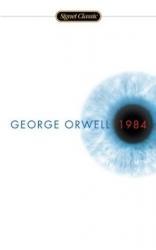
Okay, let me just say this: All you poser dystopian teen novels 'breaking the rules' with scandalous gratuitous plot elements better just step back. Nineteen Eighty-Four, the granddaddy of all dystopian novels, just handed your butt to you. This book isn't kidding around. Danger, insubordination, illicit sex, graphic torture, this book has it all. It's not for the weak of heart. And the ending is so powerful and heart-wrenching! The only reason it doesn't get 5 stars from me is the lengthy political and philosophical treatises that appear a few times in the book. I get it, this is the quiet power behind the novel and the part that is dissected by academia. But I'm not an academic, so it didn't do it for me.
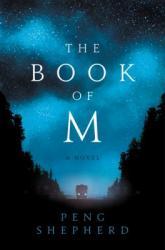
The Book of M is a beautiful dystopian novel about the power and beauty of memories and the pain that comes from losing them.
One day in a market in India, a man loses his shadow for no apparent reason anyone can explain. Shortly after, the man begins forgetting everything he ever knew, but in its place receives a strange and new power. This phenomenon of the lost shadow, soon becoming known as The Forgetting, spreads throughout the world and transform it into a strange dystopian world that is hardly recognizable.
The two main characters, Ory and Max, have escaped The Forgetting so far until one day, Max loses her shadow. Fearing that the more she forgets, the more dangerous she will become to Ory, she flees across a dark transformed world. All the while holding a tape recorder, on which she records her thoughts and feelings of the journey, and her experience of forgetting. Meanwhile Ory, not wanting to give up the little time they have left, follows her, embarking on a strange journey of his own.
The novel swivels back and forth, every other chapter, between his journey and hers. Max’s chapters to me were the most poignant, the most powerful. The recordings of her experiences on her journey, and the emotions she experiences as she fights against this inevitable loss, and slowly forgets everything, made me want to mourn with her for all she was losing. The emotions portrayed by Max’s character came across so real and raw, and anyone dealing with someone who is suffering from Alzheimer’s will be able to sympathize with this very real portrayal of what it’s like for them to forget everything about who they are. This novel is a tear jerker for sure!
Meanwhile Ory’s desperate attempt to find the woman he loves, is a testament to his hope in their survival and his belief in renewal, both for his wife, and I think on a deeper level, the world that was ravaged by the Forgetting. However, as his journey progresses, he is confronted with the reality of this new and dangerous world, and as he begins to adapt to this new world, he realizes that nothing will ever be the same again.
Filled with beautiful prose, strong character development, and peppered with details of a classic dystopian novel, this novel is a testament to the dystopian genre. Peng Shepherd does so much more than just tell a classic dystopian story, though. While it has all the classic elements of dystopian story, her portrayal of Max’s character almost made the novel read like a memoir but feel like a psychological thriller. Yet the existence of magic, and the way it shaped much of the spine of the story, took her novel into the realm of magical realism. The portrayal of war and action took her novel into the realm of an adventure story. Yet the stories focus on the female main character of Max, took the story into the realm of woman’s fiction. However, Max’s musing on her loving relationship with Ory, made the story delve into the realm of a romance. Taking her readers across a large geographic space, different cultures, different people, and different genres, she attempts and succeeds in a telling an ambitious and complicated story that seeks to display the power of the human spirit and ask what it is, to be human.
This story is beautiful, poignant, powerful, dark, filled with adventure, romance, and magic. The long story short, it has something for everyone. This book comes out June 5 but you can put it on your holds list today! If you haven't, please do! You won’t regret it!
Thank you to William Morrow a imprint of Harper Collins Publishers for an ARC of this beautiful novel in exchange for an honest review!
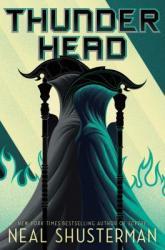
Hey y’all. It’s been a while since my last book review, so I’m going to talk to you for a minute about Neal Shusterman’s Thunderhead. Minor spoilers for Scythe will likely occur throughout, given that this is book #2 in trilogy.
Thunderhead is set in a future world of plenty, where death and poverty and illness and war have been eliminated by the Thunderhead, an artificial intelligence developed from what we currently call “the cloud.” Every human has nanites in their blood that reduce pain from any injury, and slowly repair any damage. And if by some unfortunate accident, you happen to die, a drone will recover your body and take you to the nearest facility where you can be revived (your first one’s free!).
However, in order to curb overpopulation, the Thunderhead allows for the Scythes. Scythes are an order of highly skilled assassins (of sorts) who exist to keep humanity’s numbers in check. They maintain a quota of gleanings, permanent deaths for a chosen few to remind people of the mortality that the entire race once faced. Anyone who is gleaned by a Scythe earns immunity for their family for a year.
Book one in the series, Scythe, follows Rowan and Citra, two young teens who are chosen as apprentices to Scythe Faraday, who intends for one of them to become his successor. Their training leads to the widening of schisms within the Scythedom, and soon they find themselves pitted against each other over the right and wrong ways to go about their duties of gleaning.
Thunderhead picks up several months after the events of Scythe, with Citra now serving as Scythe Anastasia, and Rowan operating in the shadows, gleaning other Scythes who he deems to be immoral and corrupt. Dubbed Scythe Lucifer, he lives a life on the run while Anastasia is honored for her rather benevolent take on gleaning (giving her victims a month’s warning, and allowing them to choose the means by which they will die).
This book introduces more perspectives from the Thunderhead itself, giving the reader powerful insight into the all-powerful AI’s thoughts and concerns. We also meet Greyson Tolliver, a young man who has devoted his entire life to serving the Thunderhead, and has his loyalty tested to the extreme. While this can feel like it’s drawing attention away from Rowan and Citra, it contributes to the worldbuilding. And while Scythe had a phenomenal dystopian feeling, there were many questions left unanswered that are picked up in these chapters and monologues.
Now Anastasia and her current mentor, Scythe Curie, have been targeted by a mysterious attacker who seems intent on ending them both permanently, while Rowan grapples with the consequences of his actions as Scythe Lucifer. The Thunderhead muses on the Separation of Scythe and State, lamenting its decision to refrain from interfering with the actions taken by members of the Scythedom, finding clever ways to work around the various safeguards that it has installed in society (and maybe finding out more than it was ever meant to know).
All in all, Thunderhead is a powerful followup to Scythe, a worthy companion and, to my simultaneous joy and rage, the second book in a trilogy. Book three is due in 2019, and I can’t wait to see how this all wraps up.
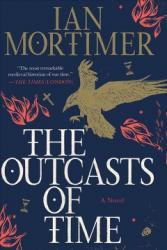
This book follows the story of two brothers John and William in 1340’s Medieval England who are suffering from the Black Death. But as their end draws near, they are given a choice that changes the course of their lives forever. They are told that they have six days left to live, which they can either spend with their loved ones, or search for salvation and redemption for their lives across the centuries; spending each one of their remaining days 99 years after the last. So, each day takes places one century after the last. The brothers choose the latter and are launched into an adventure that spans centuries in the time frame of a few days.
Observers of the world across centuries, John and William hardly recognize the world around them each day they wake up, and as their journey for salvation progresses, questions the world around them in a way that has readers questioning humanities true motives. Rather than focusing on the good things and advancements the world has made through the centuries, the characters, especially John, ponder how these advancements have brought humanity farther and farther away from God. As the years and days progress, the novel asks the question what is true salvation really and examines the idea of what is good verses bad?
When I received an ARC of this book in the mail from the publisher at first, I wasn’t exactly sure what to make of it, but as I read the back, I became excited, because this book deals with a sci-fi like subject of time travel in a way I haven’t seen before. This book took me a while to get through and it also is a book that really makes you think. Warning! If you are looking for only a traditional time travel sci-fi book, this book is probably not for you however, if you like historical fiction this book is probably more for you. This book deals with time travel in a highly conceptual way. It is a time travel book written by a very noted historian and reads very much like a historical novel with all the historical details you would find in a history book. But it is also very philosophical as the main character questions the world and the ideas in it. As this quote from John shows when he is discussing, with the family he is staying with, the bad things done by others around them.
“I myself wish for nothing more than to spend the rest of my days engaged in good deeds,’ I say. But how can I tell what a good deed is in this day and age? What is “good” and “bad” if God’s law is constantly changing? How can we do good if the meaning of “good” and “bad” are dependent on who wins the war? How can a man go through this world in sure knowledge that he is doing the right and proper thing?”
This is just one of many philosophical musings that the author poses through the book that seek to answer difficult questions and these details really make the reader think and ponder the difficult answers to questions like, what is good verses bad. These details I think also give the book a conceptual quality that puts it above the norm and makes it more than just another sci-fi book about time travel.
Ian Mortimer is an excellent historian and the historical detail in this book are incredible! He weaves together history and time travel in a highly original and interesting way that makes readers both question the world and presents readers with a clear picture of England’s evolution from a small underdeveloped town to a large industrial country that leads the world in more ways than one. I highly recommend this book for readers of historical fiction or anyone who likes highly conceptual, philosophical books that question the world and everything in it. I give this book a solid 5 out of 5 stars!
Thank you to the publisher Pegasus Books for an ARC of this book for review.
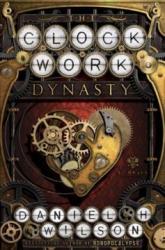
When I picked up this book, I have to admit, I was surprised, because sci fy steam punk fantasy stories is not the type of book I usually read, yet it ended up being so much more than I had imagined. The Clockwork Dynasty is not just a book about a race of humanlike mechanical creatures or avtomats that secretly live among us and are fighting a war that has raged for centuries, but it’s a story about life and the constant search for meaning and purpose.
This book waffles back and forth between present day Orgon, Washington and other places, and the 1700’s beginning in Russia and taking the reader on a journey through history and time. And while this may bother some people, the non-linear storytelling I think, adds so much more to the book and allows the author to unfold the story in a deeper more meaningful way.
In present time it follows the story of June someone who has made a career in ancient technology, ever since an encounter she had a child with her grandpa changed her perception of the world and started her fascination with this avtomat technology. A couple years after her grandfather’s death she receives a avtomat artifact that will cause her to team up with an avtomat named Peter, launch her into a great adventure in the secret avtomat
world, and ultimately determine this race’s extinction or survival. In
the 1700’s it follows the story of brother (Peter) and sister (Elena) two humanlike avtomats that were resurrected by a Russian clock maker using something called an anime which serves as the Avtomat’s heart and soul. As they live through the years they spend it hiding their secret, trying to blend into society, and fighting a war that has been raging among their own race for centuries.
This story explores the character’s constant search for meaning in a way that is both at times sad and extremely insightful. In the book each avtomat’s anime is marked with a Pravda or a special word that is their bond and command. As long as they satisfy their Pravda, they are at peace, otherwise they suffer. In Peter’s case this word is justice. As the book progresses we see his idea of justice shift and change as he lives through the years. Through a fascinating inner dialogue, Peter perception shifts from gaining justice simply by serving rulers in war to something far deeper and more moving, as this quote, when he encounters a dying soldier on the enemy’s side in the battlefield, suggests:
“Once Pravda was clear to me. By obeying my emperor all was well. But what was simple is becoming complex. I can see no evil inside this grievously wounded man, only honor. And though no clockwork flutters beneath his throat, I can see the inevitable forces that led him here, through no fault of his own, fating him to die in the shadow of this crumbling wall.”
As the book progresses a new perspective of right and wrong emerges leaving him questioning not only who he is but why he was made.
Another major theme this story also explores is the theme of war. As Peter recounts from his past, countless experiences on various battlefields throughout his life, and in the present, his own thoughts on his own race’s war; the reality of war is pressed heavy on the reader making this book at times very depressing, sad, and dark.
This reality is made even more real by the moving prose and incredible worldbuilding that takes place throughout the book. Another reason I love this book is the incredible character development between Peter and Elena.
How she is treated by him as a little sister at the beginning of the book, and how he sees her changes through the book from a little girl needing his protection to a sophisticated, wise learned, woman who’s one desire is to make her own way in the world is absolutely incredible. Daniel H Wilson does an amazing job of weaving together past and present into an engaging literary story that has something for everyone. Thank you to Doubleday books and Netgalley for an e- ARC in exchange for an honest review!
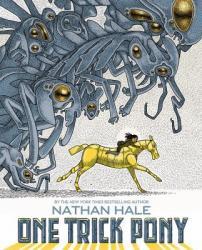
In this creative, futuristic graphic novel all technology has been stolen by a species known as the Pipers. When a young girl and two of her friends stumble into a hidden cache of robots, they become the targets of a wild chase. This book is exciting, unique, and includes a battle in outerspace! Recommended for grades 3-6.
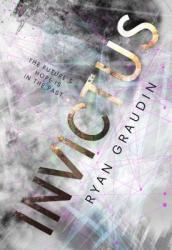
Faraway McCarthy was born to be a time traveler. Literally. His mother, Empra McCarthy, had him in the midst of a time traveling journey of her own and he was born outside of time. Currently, he's the #1 cadet at the time traveling training school and is looking forward to a career as illustrious as his mother's. But then his final exam is sabotaged, and he's unceremoniously kicked out of school. When a black market smuggler approaches him with the opportunity to recruit his own crew and travel to the past to steal ancient artifacts, Far takes the offer.
This was pure fun - I love heists and time travel shenanigans, and this had both. While it is a longer book, the fast pacing and well drawn characters make this a relatively quick read. Each member of the crew has at least one chapter written from their perspective, and I really enjoyed getting to know them all, particularly Imogen (Far's snarky but kind cousin). They are a somewhat diverse, fun group, and their strong friendships and healthy relationships were a joy to read about. Are any of the concepts or plot points particularly novel? Nope, but it didn't matter, because the cast and the story are just that fun.
In addition to the crew committing heists, there are other mysterious elements in the form of another time traveler who appears out of nowhere on a job (on the Titanic!) as well as in the mystery of where (when?) Empra is - she went out on a mission when Far was quite young and never came back. The reveals of both mysteries are pretty great, and I honestly didn't see either coming.
Also, and this cannot be stressed enough, but the crew of the Invictus has a pet and it is a RED PANDA (!!!) named Saffron. So much cuteness.
As it's not exactly a novel concept, I think this books screams for comparison (Doctor Who seems inevitable), but I would almost think of this more like an entirely human time traveling version of the Guardians of the Galaxy. I read it when I was suffering from reading fatigue, and it was a total refresher. I really liked it! 4 stars.
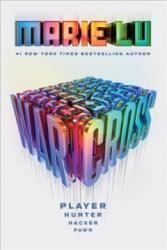
Ever since her father died, Emika Chen has had trouble keeping her head above water. Her job as a bounty hunter barely pays the bills, and she's on the brink of getting evicted when she strikes proverbial gold. In Emika's world, an alternate near future, everyone is obsessed with the virtual reality game Warcross. During the Warcross International Championships opening ceremony, Emika hacks her way into the game, and gains instant international notoriety. She is recruited by Warcross creator, Hideo Tanaka, to use her bounty hunting skills to find another hacker who is threatening to destroy the Warcross championships.
This was a lot of fun. By far the best parts were Warcross descriptions. Imagine Quidditch meets the battle sims from Ender's Game in a completely virtual setting where the landscape changed in every game. The Warcross descriptions were epic, and quite frankly, I wish there had been more of them. Emika is likable enough, though she makes some really irritating decisions (I hate it when problems could be easily solved with communication and the lead just opts to keep everything to themself). I actually liked some of the side characters more than Emika - I would read a book starring pretty much anyone on her Warcross team. I hated Hideo with a passion though, I never could figure out why the world, and our lead, thought he was awesome (I mean, aside from the smart/rich/powerful thing, but those things do not a personality make). Any part featuring him had my eyes rolling back in my head. That being said, the cast is really diverse, which is refreshing, and for the most part, I liked 'em. There are also a few fun gaming references, and I'm sure I missed many more.
But, for all that it's a fun read, there were a few things hampering my enjoyment. The book had a few premise problems. Emika would utilize a solution/hack, and it's one where you're like - wouldn't this have easily solved your 5 earlier problems? People's motivations don't always make sense, but this could be fleshed out in the sequel. Oh, and there is a romance and it's awful and instalove adjacent.
Premise and romance issues aside, this read was a lot of fun. It's not a wholly original book, but the Warcross descriptions and twists at the end ensure that I'll be there for the next installment, which I suspect will be a
much better book. This was somewhere in between a 3-4 star read for me, so I'm rounding up because PPLD doesn't use half stars. 3.5 stars.
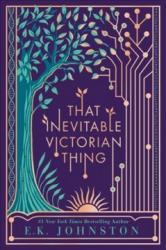
In the near future, if Queen Victoria’s reign and the general principles of the time had been perpetuated, crown princess Victoria-Margaret is travelling to Toronto to masquerade as a commoner so that she can have a proper debut season. Regardless of who she meets, however, she will be required to marry a strong genetic match to ensure the strength of Queen Victoria I’s line. At the same time, non-socialite Helena and her beau August are heading to Toronto for Helena’s debut, and introduction into high society. The three will meet, and the events of the summer will change their lives forever.
I’m a huge sucker for books set in Victorian and Edwardian England, so I was eagerly anticipating this read. Unfortunately, it didn’t work for me. Part of the problem is that the charm of reading about Victorian England is that it is in the past. We certainly don’t accept a lot of those social sexist, racist and classist norms now (or at least, we pretend not to, but that’s a whole different discussion) and I think that’s for the best. It was weird to read a book about the future that’s not meant to be a dystopia where many of those awful norms are still acceptable. The author does acknowledge this in a note at the end, which is why I’m giving this two stars instead of one. There were also quite a few worldbuilding holes, if you will. For example, at one point, Margaret has a question about sexual identity. Bear in mind that this is a near future book in which the characters have access to computers and some form of the internet. So, instead of doing whatever the equivalent of googling the question would be, she e-mails her uncle, the archbishop, which no teen ever would actually do. Little inconsistent things like that popped up relatively often, and I found that it pulled me out of the story.
Speaking of the story, there’s not much in the way of plot here. That’s perfectly fine, if plot is being sacrificed for character development, but the characters here were not particularly compelling. The POV switches between the three main characters, and while all of the characters were nice and likable, they were also fairly bland. I didn’t care about anyone but Margaret until a big reveal about halfway through the story, at which point I started to find Helena interesting as well. I never could make myself care about August. All of that being said, I definitely think that romance readers will respond positively to this novel. I just kept getting bogged down in the worldbuilding or lack thereof, and never could connect with the characters. It wasn’t for me. Thanks to Dutton Books for Young Readers and Netgalley for the eARC. 2 stars.
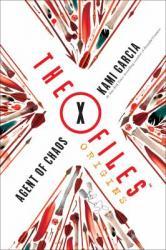
When Fox Mulder was just a kid, his little sister was kidnapped while he was babysitting her. That event has haunted him and his family ever since. So, when children start to go missing and then turn up dead from what appears to be a ritualistic serial killer, Mulder knows that he has to do something.
While I like the X-files, I'm certainly not the world's greatest fan - I've probably seen around 1/2 of the episodes, and I haven't watched the reboot. However, this book jumped out at me as I was perusing the stacks, and I'm glad it did. In fact, if you are just a fan of mysteries and/or the paranormal, this book will totally meet your needs. You can go into this without knowing anything about Mulder and the TV show, and you'll still have a great reading experience. If you are an avid fan of the show, there are several "easter eggs", cameos and cute references throughout the book (the smoking man shows up in the first chapter!). Also, it's got some entertaining historical fiction elements as the book is set in 1979, and that is very much reflected in the music and technology.
Garcia does a great job with the character development. Mulder quickly teams up with two other "genuis" types, and this book could've quickly devolved into some variation of "three teen geniuses solve a crime caper" a la a number of middle grade/YA books out there, but Garcia fleshed the characters out to the point that this pitfall was, for the most part, avoided. Mulder is, understandably, obsessed with finding his sister, and his parents are separated. His best friend, Gimble (a D&D name), has a father who is so enmeshed into conspiracy theories that he's been fired from the Air Force (he may or may not be an influence to young Mulder). His other best friend, also a love interest, was not as well developed, she was easily the weakest character, and I could've done without her and the romance. The story itself was a well done serial killer mystery, though the end felt a little abrupt with a ton of loose strings. The mystery is only mostly resolved, so I'm assuming there will be a sequel.
Anyone looking for a decent mystery with good characters, look no further. The X-files stuff is just icing on what is an already pretty tasty cake. I wanted to believe (I couldn't help myself), and this book didn't let me down. 3.5 stars.
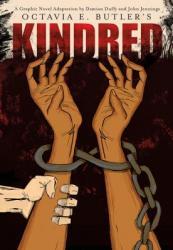
Octavia Butler's Kindred broke so much ground both as a flawless time travel novel and visceral retelling of the slave experience. As an African-American author writing science fiction, her body of work changed the field while winning its top honors -- the Nebula and Hugo awards -- and the author herself was awarded a MacArthur genius grant. This graphic novel is an excellent introduction to her work, and is highly recommended for YA and adult readers alike.
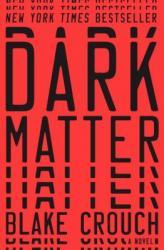
Jason Dessen is a physics professor who lives with his wife and son in Chicago. One night as he is walking home, he is abducted by a man in a geisha mask, made to drive to an abandoned building on the outskirts of town, and drugged. He regains consciousness surrounded by strangers who say they’ve been anxiously awaiting his return.
The title itself is a bit of a spoiler for what it takes Jason the first 100 pages to figure out, which is an unrealistically long time, as he is purportedly a “brilliant experimental physicist.” The narrative is tainted with passive misogyny as well, and the whopping total of two female characters are barely characters at all, and the author makes it quite clear how easily disposable either of them are. Once Jason’s situation becomes clearer, the description of the book's technology is both imaginative and logical (really the only part of the book I enjoyed). Following this plot point, the squishy-brained version of Jason whom we have no option but to see as the protagonist makes stupid decisions as overgenerously as Peter Jackson makes Hobbit films.
The story Crouch attempts to tell has literally limitless potential, yet he explores, well… not very much of it. The strongest characters fail to live up to even their basic outlines, and overall the book falls face-first into disappointment and unintentional humor. It’s a science-fiction story written in the style of a supernatural drama. Crouch should not have strayed so far from Wayward Pines.
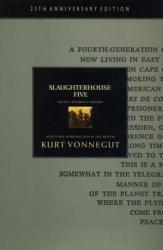
"So it goes..."
You may be thinking that based on the title it is the fifth book in a series of horror novels, but I assure you that it is not. Slaughterhouse-Five is a very thought provoking and poignant anti-war novel that has elements of science fiction, including 4th dimensional time travel and aliens. It’s a nonlinear story that follows a man named Billy Pilgrim as he travels throughout different moments in his life, weaving back and forth through differing time periods. He travels from his time as a chaplain’s assistant in World War II to his normal life with his wife and children to being an exhibit in an alien zoo on the planet Tralfamadore.
By becoming “unstuck in time”, as Billy puts it, he is able to relive these moments in his life and reflect upon them more deeply. This book is one of the best representations of 4th dimensional time travel that I've come across, and if you ever struggle to grasp the concept of time as the 4th dimension, as I do from time to time, then this book will certainly help create a better understanding of it. The book centers around Billy Pilgrim’s experiences during the war and all of the atrocities that he has seen, culminating at the end with the Bombing of Dresden, a moment which influences the rest of his life.
By being told out of chronological order, the structure of the book drives the importance and impact of the moment rather than just describing what happens next and it creates a sort of puzzle that the reader must put together. It is full of satire, wit, and black humor that is vintage Vonnegut and is one of the strangest meditations on war and humanity. If you want an extremely thoughtful book that challenges your perspective, then I highly recommend Slaughterhouse-Five by Kurt Vonnegut.
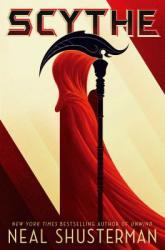
In 2041, what we currently call "the cloud" morphed into a version of AI called "the Thundercloud" that was able to solve all of the world's problems. Death has been basically eliminated - all manner of illness and injury can be cured, and pain is a thing of the past. Thundercloud stops the effects of global warming, and calculates how to best use the world's resources so that no one goes hungry. It's also made government completely irrelevant. However, to stop overpopulation, people called Scythes have to glean, or permanently kill, random members of the population. Scythe follows two teens, Citra and Rowan, as they reluctantly apprentice to become a Scythe.
I think Shusterman has another "Unwind" type of hit on his hands. As the book develops, the seemingly Utopian society gets darker and darker and more dystopian - but really only because of the gleaning. The Scythes have a rich history, and it was interesting to learn about them and their different approaches to gleaning. The book is absolutely at its best when examining humanity and the moral obligations and quandaries that come along with being a scythe - I ended up reading the occasional sentence out loud to my partner, which is something to which I rarely subject him. The ethical implications of gleaning are pretty huge, and the examination of killing and its purpose are what really makes the book a fun read. Also, no surprises here, Shusterman, a National Book Award winner, can WRITE.
I did feel that the book had some premise issues. As the book explains it, your chances of being gleaned, or even knowing someone who has been gleaned, are pretty rare. So why is gleaning even necessary? The book addresses this, but the answer was not satisfactory. I can also easily think of solutions to this problem that don't involve random killing. For example, why not impose some sort of birth limit (people have dozens of children in this version of the future)? Or maybe only those that have children are eligible for gleaning? Or maybe you only get "9 lives". The tenth time you die, it's for real. There wouldn't have been a book without the gleaning, but the book also never managed to convince me that gleaning was a thing that actually needed to happen. I also found it terribly convenient/nonsensical that the Scythes were the only group of people that operated outside of Thundercloud. Like, why? Thundercloud literally solved ALL of humanity's/the earth's problems, but this, life and death, one of the arguably most important problems, we're going to leave up to humans? Mmmmmmmmmmk. Oh, and then Citra and Rowan are eventually pitted against each other, and the rationale as to why makes absolutely no sense. Especially after a certain event transpires, and they STILL are in a fight to the death. It doesn't seem consistent with the rest of the world-building; it felt like a contrived (and unsuccessful) plot device.
Premise problems aside, I really did enjoy the book. If you like near future books, dystopians or ethics, it's definitely worth a read. 3.5 stars.
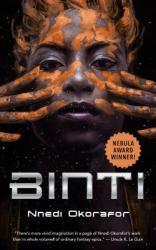
This was a fun little sci-fi novella. Binti is about a Himba girl from Earth -- the eponymous Binti -- who is accepted into a super-prestigious university and becomes the first Himba to go off-planet to attend college. There's a lot of prejudice against Himba by the Khoush on Earth, so Binti is nervous about traveling outside of her homeland, but when she gets on a shuttle with fellow students they find they have their love of science and astronomy in common, and she begins to feel optimistic about attending Oomza University. However, part-way into the journey the Meduse, a type of alien in a long war against the Khoush, attack the ship at dinnertime and kill all the students -- except for Binti. She’s not exactly sure why, but it seems to have something to do with a mysterious artifact she found in the desert that she keeps as a good-luck charm. Binti hides in her room, but she fears it will only be a matter of time until the Meduse kill her; she might not be Khoush, but she's a human on a Khoush ship, and that's enough. What seemed like the beginning of an exciting new life now is going to end just days after her departure.
I listened to Binti as an audiobook, and the narrator did a wonderful job with the story. I enjoyed Binti’s perspective and was drawn in by the back-story of their world -- the astrolabe technology everyone seems to use, Binti’s skill as a Harmonizer, living space-ships, and many other intriguing details. It’s extremely short -- just 90 pages -- and at the end I definitely wanted more information about the world and its people and technology. On the one hand, it’s good that Okorafor made me care enough to be interested in hearing more, but the tradeoff was that book felt a bit rushed/cramped at times. There are novellas that work perfectly in that form and are paced so well that they’re as rich and complete as a full-length novels, but this one didn’t quite meet those standards. This is intended to be the first book in a series, so I'm cutting it some slack for that reason, but it still didn't quite work on its own. The message was strong, but there were plot points I would have loved to see explored in more depth, relationships I wish had been better fleshed out, and some finer details of the setting that I wish Okorafor could have delved into to make for a more satisfactory ending. I still enjoyed the story for what it was, and I'll be looking out for the next entry in the series, but it fell a bit short of what I wanted. That being said, it's a creative story with a very cool setting, and I would certainly recommend Binti to fellow sci-fi fans.
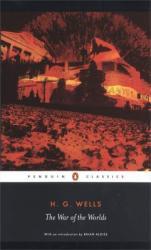
At only a smidgen under two-hundred pages, this book appeared to be a concise and quick read. Surprisingly, my experience was quite the opposite. The War of The Worlds presents a typical scenario that many novels have sadly claimed. The initial third is gripping and chocked full of descriptors and entertainment; the second third is nearly pointless to the main plot; the concluding third wraps the story up, leaving enough aspects unresolved for the imagination to expand upon, but doesn't carry on the initial third's promise. Thus, leaving the reader confused and with a feeling of wasted time.
Initial Third:
After reading the beginning chapters a sense of urgency becomes the overlying theme. Peril soon engulfs the novel's setting as its characters realize the grave situation. The Author takes his time here by writing pages of description to meticulously set the scene. The story progresses to a small climax at the end of this third, which casts a shadow of high expectation on the other two thirds. This initial third is a marvel of a opener that brings honor to the class of classic English-literature.
Second Third:
If paper could speak to its reader it'd ask that they'd grip their new-found excitement and trudge through the muck. The majority of this third's viewpoint comes from that of a flat secondary-character with little importance to the story. This characters presence only delayed the objectives that the first chapter created. Their travels were hectic; slightly smile inducing at times. Taking this character shift seriously was difficult as the pages grew thinner and crucial answers were yet to be disclosed. The author even goes as far as giving a figurative apology for sidetracking the reader at this third's close; H. G. Wells' canny sense of humor makes an unexpected appearance here.
Concluding Third:
After hope for the story as-a-whole was drained, Wells restored the glorious successes of the initial third, but not fully. Excitement and intensity were brought back as the conclusion drew nearer. The story abruptly shifted to the round, main-character, again; swapping character who're in different settings is usually abrupt, so this isn't a true issue. This character goes on to see the conclusion, which wraps up most of the events and questions that the previous content created.
My Take:
I didn't find this novel to be terrible or great. It proved to me that it's a mediocre work glossed with wild literary technique and vocabulary. Wells' persistence use of over description dimmed the natural flow and appeal of his writing. There's little reason to use half a page or more to describe minute details. It would have been better if he spent the time to detail the larger picture, rather than tiny scenes. Character development was superb at first, but fell flat due to the second third's character shift. If the second third was omitted in its entirety and, then rewritten without the secondary-character's perspective the novel would be vastly improved. Wells wasn't an illiterate fellow with corn for brains. His derailing of the story added multiple perspectives and was most likely an attempt to add another dynamic. The incessant over-descripting showcased his incredible vocabulary while portraying him as an over confident writer. Paying closer attention to the plot and character development will lead to a better story than any amount of impressive vocabulary ever could. It's clear that H. G. Wells is a gifted and skilled writer, but this certainly isn't a jewel.